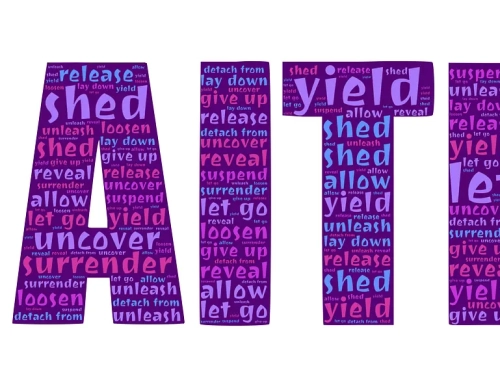Have you been there? Despite the swirl of ideas and the desire to spin them into a story, when you sit down . . . the words don’t come. Or if they do, they aren’t the one you were hoping for. Perhaps you’re blocked, or discouraged, or plagued by questions of “Will this do?” when you see those little black letters lining up like tiny soldiers on your screen.
I sure have been there! And although I don’t have a magical elixir to offer that will get those words flowing for you, I do have some tried-and-true tips for how to get those stubborn words out when the ideas or motivation are slow in coming.
1) Ward off the “Is this good enough?” thoughts.
It can be crippling to write through a constant filter of “Is this good enough?” We use a different part of our brains for writing than we do for editing, so although every writer’s process is different, often it’s true that separating drafting from editing can allow for greater productivity. Anne Lamott famously encouraged writers to give themselves permission to write bad first drafts. Another comparison is to think of drafting as shoveling sand into a box so you can build castles with it later (during the editing process). When those worries of “Is this good enough?” come knocking, sweep them away and remind yourself that it doesn’t have to be good yet! Write a sentence, even if it’s bad. Maybe even revel in how bad it is sometimes. Shovel that sand and take joy in knowing that the chance to sculpt castles will come—all in good time.
2) Break it down into small chunks
Although word counts aren’t necessarily the most inspiring driving force all the time, sometimes in order to keep momentum or meet a deadline, we must take them into consideration. Right now, I’m on a schedule where I need to write about 1,000 words a day and sometimes more. That seems daunting to me (I’m a slow writer!). So, I give myself a goal of 500 in the morning and 500 at night. Often if the words get flowing, I overshoot the morning goal, and therefore only have 200 or 300 words left to go at night. This article is already more than 300 words. Breaking it down makes it seem much more doable!
Even so, I sometimes still struggle to get those words going. In those cases, I tell myself, “Just write 100 words.” By the time 100 are out, the flow has begun, even if it’s just a slow trickle, and then I can keep going.
We’re writers. We can use our imaginations to help our imaginations. I imagine I have to write only 100 words, when I really have to write 1,000 . . . and it works! 😉
3) Remember the joy, privilege, and delight of this calling . . . and think of it as a way to serve others.
There are times in the midst of those daily word counts when things begin to feel a bit routine. When those times hit, I don’t want to lose sight of the fact that writing is something that has been entrusted to us—something to steward well.
I know very deeply that numbers and mechanics aren’t my strong suits. I am so grateful for those who excel in this area. Thankful for the way they can look at a problem and make logical sense of it and offer three different possible solutions before I’ve even begun to wrap my head around it.
In a similar way, it is good for us to remember that words don’t come naturally to everyone (and I love that everyone’s gifts are so vastly, beautifully different!), but everyone has thoughts, ideas, emotions, and experiences. Sometimes, hearing their thoughts, ideas, emotions, and experiences put into words can help people feel less alone, help healing begin, and bring a splash of joy or friendship—even through the page. Words are wonderful in this way, and when I remember this, it suddenly feels like a privilege to get to be even a small part of that work. It helps make typing out those word counts look less like letters on a page and more like remembering the hearts who will someday read it.
Whatever project you’re working on or considering, I’m saying a prayer for you today, that when the difficult stretches come you’ll find inspiration and perseverance as well as the reminder that your work matters so very much. And, more importantly, so do you.
~
Amanda Dykes is the winner of the 2020 Christy Award Book of the Year, a Booklist 2019 Top Ten title, and the winner of an INSPY award for her debut novel, Whose Waves These Are. She’s also the author of Set the Stars Alight (a Christy Award finalist), Yours Is the Night (recipient of the Kipp Award, Christy Award finalist), All the Lost Places (starred reviews from Booklist, Library Journal, and Foreword), and three novellas. Find her online at amandadykes.com.
Amanda will keynote at the upcoming 2023 OCW Cascade Christian Writers Conference June 25–28. Visit our conference page or more information.









